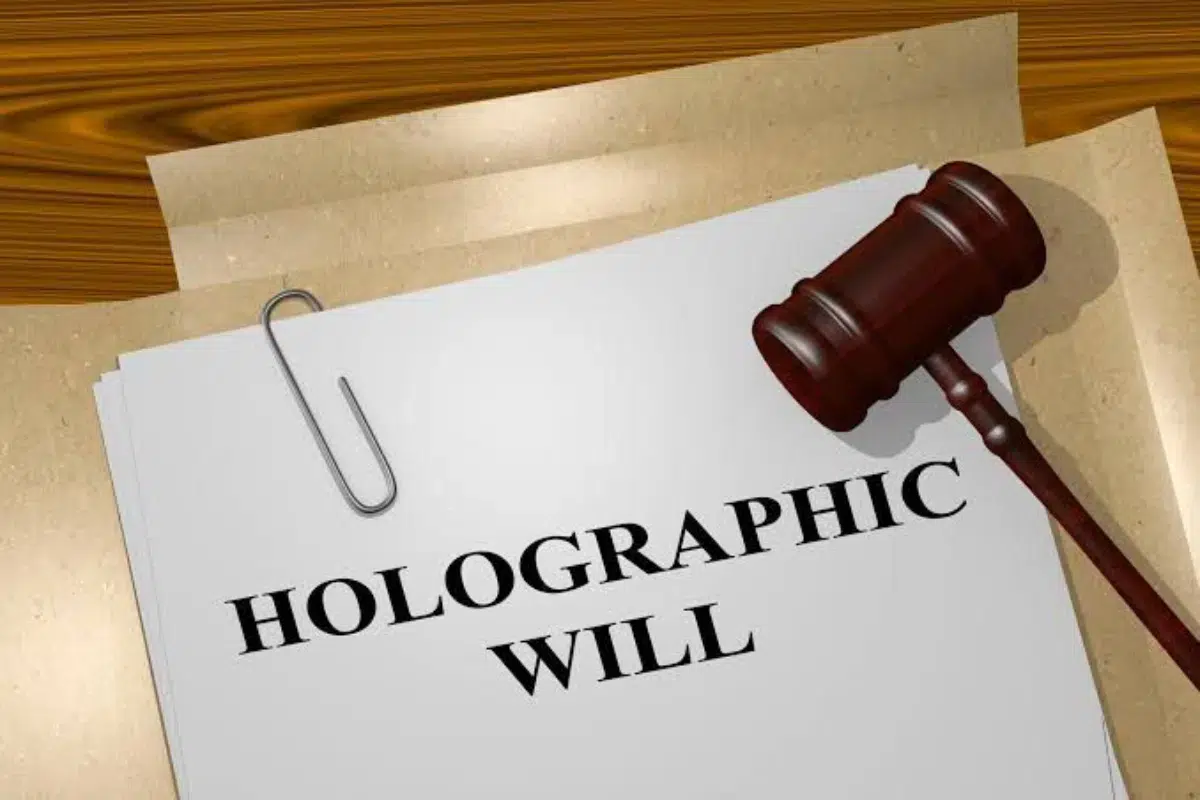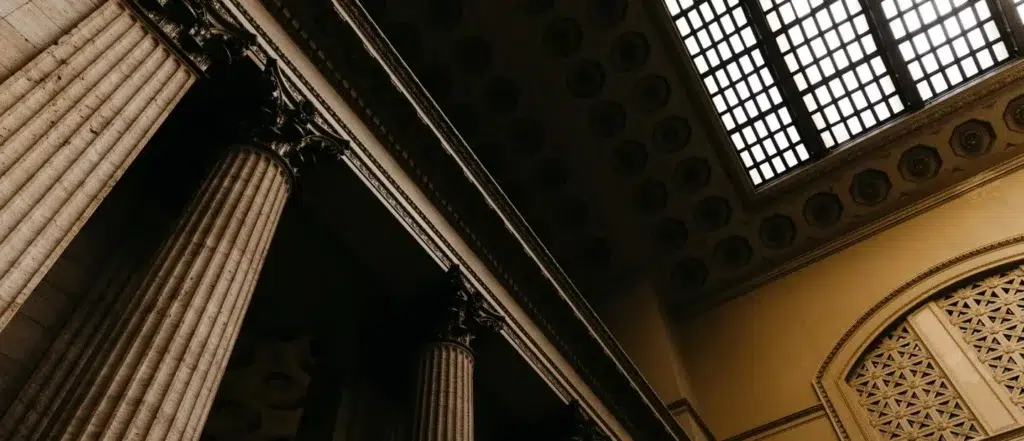A holographic will is a last will and testament that’s been entirely handwritten and signed by the testator (the person creating the will). While it’s generally considered best to draw up a traditional will as a part of a complete estate plan, a holographic will is a viable alternative if someone can’t feasibly create a traditional will.
Most states, including Texas, accept holographic wills in some form or the other. However, given the general informality of these documents, you might wonder — do holographic wills need to be notarized in Texas?
The short answer is no. However, even though notarization isn’t required, there are several good reasons to consider having your holographic will notarized. Here’s a closer look.
Legal Validity of Notarized Holographic Wills
Having your holographic will notarized isn’t necessary to establish the will’s validity. However, having a will notarized can effectively authenticate it. Generally, the process works like this:
- You and one or more witnesses bring the will and meet with a notary public
- The notary verifies your identity and that of any witnesses
- The notary observes you to make sure you appear to be of sound mind and haven’t been pressured into signing
- The notary signs the document, affixes a seal, and records the notarization
Notarization bolsters the credibility of holographic wills and may make the probate process more efficient. For instance, if you have a legally valid (but unnotarized) holographic will, it could be argued in probate court that you didn’t create the will yourself.
However, because the notarization process addresses many common challenges to wills (such as authenticity, whether the testator was of sound mind, and whether they only signed because of the undue influence of another person), the court wouldn’t need to spend much time debating whether the will was authentic or not.
Do Holographic Wills Need to Be Notarized in Texas?
Most states that recognize holographic wills don’t require them to be notarized. However, each of these states may set its own criteria for what makes a holographic will legally valid.
When it comes to creating a holographic will, Texas requirements are fairly relaxed. In Texas, there are two requirements for holographic wills:
- They must be written entirely in the testator’s handwriting
- They must be signed by the testator
Notarizing holographic wills in Texas may not be a strict necessity, but it can help you avoid many of the common issues that arise when working with holographic wills.
When Notarization Might Be Helpful for a Holographic Will
Are holographic wills valid without being notarized? At least in Texas, the answer is yes.
Under the Texas Estates Code, holographic wills only need to be written and signed by the testator to be considered valid. However, getting your holographic will notarized may be wise, as it may help you avoid common issues in probate and beyond.
Here are a few reasons to consider getting your will notarized:
It Might Help You Spot Invalidating Issues
To be legally valid, a holographic will must be in your own handwriting. Unfortunately, some people think they can handwrite a will, add typed sections, and still have the entire thing accepted as a legal document.
In reality, this is rarely the case. Most courts hold that for a holographic will to be legally valid, the entire document must be in the testator’s handwriting. Otherwise, it would be far too easy for bad actors (or scorned disinherited loved ones) to attach a typed section or two and claim that the testator created it.
While there may be some exceptions, most experienced notaries won’t notarize a holographic will that includes typed pages or paragraphs. Being told to come back with a fully handwritten will might be frustrating at the time, but it could spare your loved ones serious confusion and stress.
You Might Be Able to Add a Self-Proving Affidavit
After your death, your will goes through the process of probate, which is where the court “proves” the validity of the will. Depending on the circumstances, you may be able to help this process along by creating a self-proving affidavit to go along with the will.
A self-proving affidavit can often be filed alongside a will. This document states that you’ve signed the will according to Texas law. You’ll sign the affidavit, then the notary will notarize it.
Having your will notarized adds one layer of authenticity, and creating a self-proving affidavit adds another. A self-proving affidavit might not always be necessary. However, given that your final wishes are more likely to be challenged if they’re laid out in a holographic will, it’s not a bad idea.
It Might Help Head Off Family Conflicts
Do you anticipate that your family members will fight over who gets what? Have you disinherited one or more people who may want to challenge your will in any way possible? If so, notarizing your will is probably the right move.
Even if you have a valid holographic will, courts tend to use increased scrutiny during the probate process. Bitter family members looking for an opportunity to get what they think they deserve might take that chance to assert that they believe the will is invalid and that they should be entitled to some of your estate.
Family members may still challenge handwritten wills (as well as formal wills) if they’re notarized. However, it will be significantly harder for someone to make a compelling argument against a will that’s been notarized than one that hasn’t.
Potential Risks of an Unnotarized Holographic Will
Once you’ve learned the answer to the question “Do holographic wills need to be notarized in Texas,” you might be tempted to avoid the hassle of seeking the services of a notary public. This generally isn’t a good idea. If notarization is feasible, it’s best to do so.
In many cases, an unnotarized holographic will can cause problems in probate court or when your assets are finally distributed. Here are some of the risks you may take on if your will isn’t notarized:
Ambiguity
When you write out a document, what you’re writing makes sense to you. However, what seems clear to you might seem murky or equivocal to loved ones. During the notarization process, you, your witnesses, or even the notary might notice clauses or entire sections that could be difficult for your family or the court to interpret.
Delays in Probate
If you’ve left belongings to loved ones, you probably want them to receive those items as soon as possible. Unfortunately, the probate process can be extremely drawn out, even in the best circumstances.
This is doubly true if your loved ones are challenging the validity of the will or arguing over what you meant in various sections. When your family is already grieving, the last thing they need is to be subjected to months of tense, public, and expensive legal arguments over your will.
Creating a formal will may be more complicated and expensive than creating a holographic will. By going this route, however, you can grant yourself the peace of mind of knowing that your family will likely get through the probate process smoothly and your assets will reach their intended recipients as soon as possible.
Why Work With Hunter Sargent, PLLC, for Estate Planning?
Is notarization of holographic wills compulsory in Texas? No, but it’s prudent to notarize a holographic will, and even better to take the time to create a formal will.
Most of the time, holographic wills are a stopgap measure for those in exigent situations. For example, if you’re in the armed forces and are concerned that you may be killed in action, you won’t have the opportunity to visit an estate planning lawyer and create a formal will.
There’s nothing wrong with creating a valid holographic will when you have no other options. However, we encourage all of our clients (and prospective clients) to sit down with us, create a comprehensive estate plan, and make a formal will that clearly addresses all of their concerns.
A will is the centerpiece of your estate plan. Whether you have a vast array of assets you want to distribute or just a few valuable possessions, your plan should always include a will. The experienced team at Hunter Sargent, PLLC, would be happy to help you create one.
We understand how emotionally intense the process of creating an estate plan can be, and we handle each client’s case with the respect and sensitivity it deserves. We’ve spent seven generations helping Texans create custom-made wills and estate plans, and we can help you, too.



